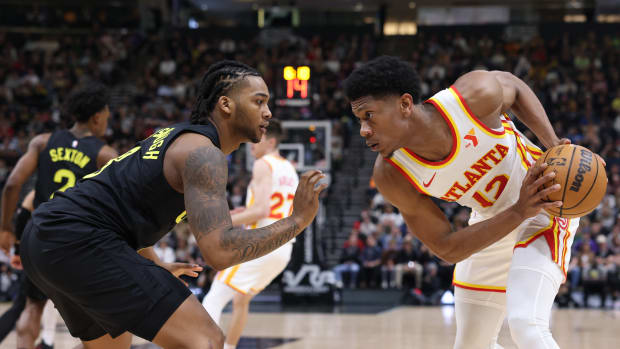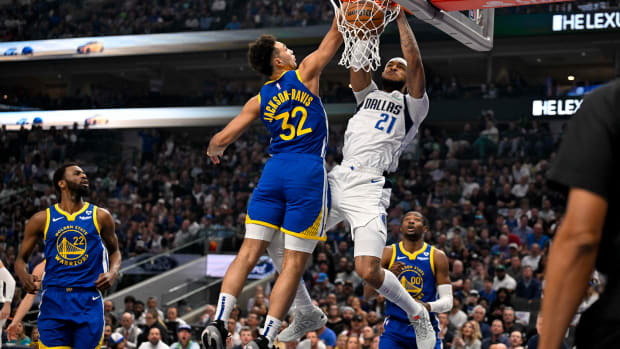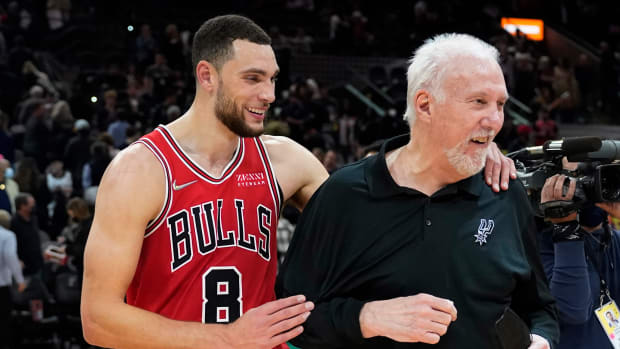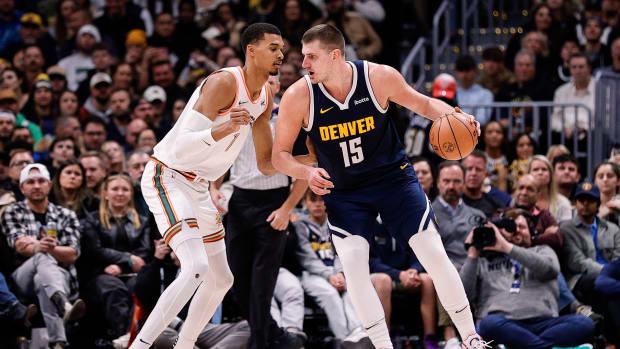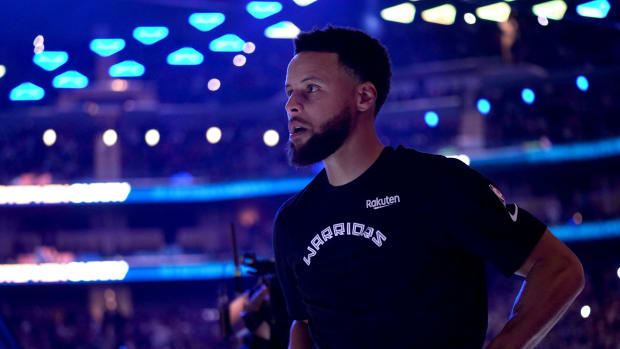Trade Grades: Suns Send Jarrett Culver to Wolves in Head-Scratching Deal
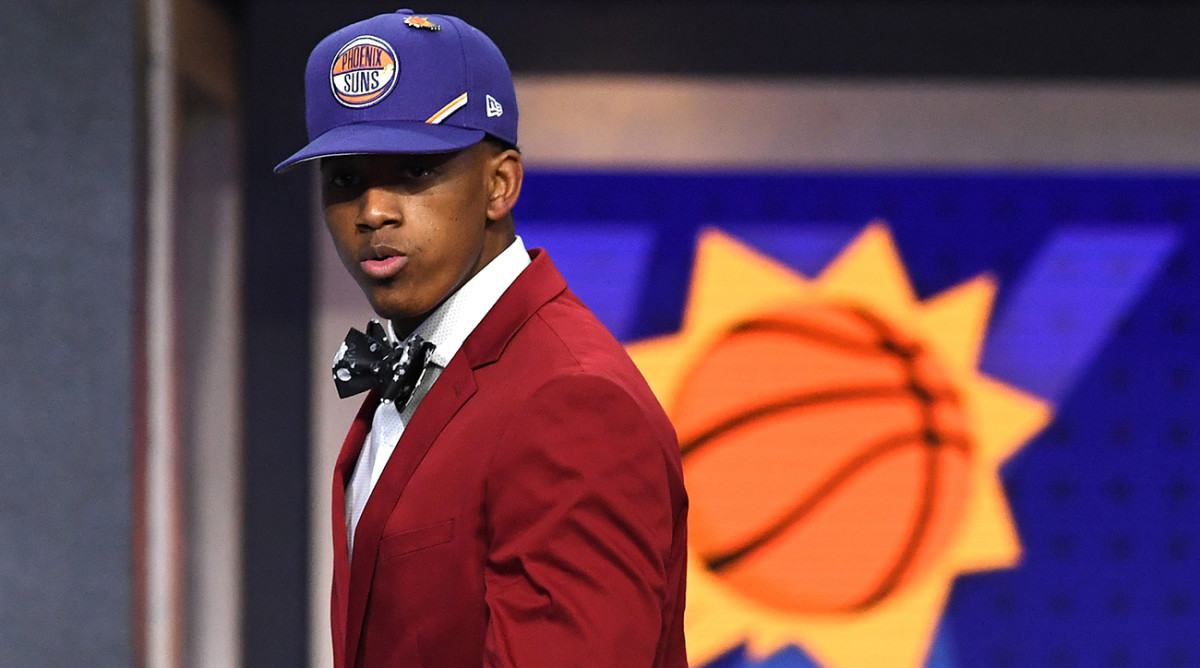
The Phoenix Suns were the most active team in advance of the NBA Draft on Thursday, agreeing to terms on two transactions that will shape their offseason. The first—TJ Warren and the No. 32 pick to the Pacers—was ultimately a salary dump, meant to clear room for free agency. With the second, the Suns traded the No. 6 pick (Jarrett Culver) to Minnesota for Dario Šarić and the No. 11 pick (Cameron Johnson).
Let’s grade the deal.
Phoenix Suns: C
When a team trades down in the draft—an acceptance, of itself, of greater risk—some reassurance is typically in order. It could come through proven NBA talent or some future pick to offset the liability involved. Or, if you’re the Suns, you take the hot-and-cold Dario Šarić in the final year of his contract. Šarić is a fine player, and kinetic in a way Phoenix needs. One could see how a team that traded away TJ Warren earlier in the day might covet Šarić as a replacement. What complicates matters is the timing involved; it’s one thing to rely on Šarić on his current deal (one that will pay him $3.5 million next season), and quite another to be responsible for his next contract.
And considering the terms of the deal, that’s the prize Phoenix has traded down to claim. Moving Warren and replacing him with Šarić clears almost $10 million in salary cap space, expediting the pursuit of free agents like D’Angelo Russell or Malcolm Brogdon. The two moves are of a piece. Yet the Suns gave up the No. 32 pick to trade Warren to the Pacers while receiving nothing material in return. They then willingly dropped five spots in the draft, surrendering the chance to take their pick from a number of interesting wings. Wouldn’t Culver have made sense alongside Devin Booker? Or if he wasn’t to the particular taste of the Suns’ front office, then perhaps Cam Reddish? The difference between the No. 6 pick and the No. 11 pick is the agency it gives you—the freedom to survey the field without concern for what five other teams might do. Phoenix gave that up, letting the chips fall where they may, for a trial run with Šarić and the chance to pay him.
If Šarić finds the groove of his game more often, his movement and playmaking could help to flesh out the Suns’ growing offense. The best of him blends nicely with Deandre Ayton’s interior work, not to mention the way he could help relieve pressure on Booker. There’s just a lot of if still involved for a 25-year-old player entering his fourth NBA season. It’s clear at this point what Šarić can do well. Whether he can do it consistently enough to be a foundational piece is another matter—and a pertinent one considering his role in this deal. With their acquired pick, Phoenix selected another shooting forward at No. 11: North Carolina’s Cameron Johnson. Together, the two new Suns are an expression of their team’s offseason priorities. Phoenix finished dead last in three-point percentage last season. They’ve seen to it to improve their spacing, though at the expense of landing a better all-around prospect.
Minnesota Timberwolves: B-
It’s best to consider the Wolves not as a complete team, but an enterprise to best reinforce Karl-Anthony Towns. No other individual player is worth shaping a roster around; some are too old, others too limited, and one, in particular, is Andrew Wiggins. A move like this is made not because Culver—the player Minnesota ostensibly moved up to select—fits with Wiggins, but because he may be more relevant to Minnesota’s future than Wiggins. It might feel as if there is urgency for the Wolves to build quickly, but their best player is a 23-year-old All-NBA talent set to embark on the first year of a five-year deal. Patience is more prudent, and giving up both Šarić and a late lottery pick for the chance to draft a 20-year-old substantiates the idea of a longer timeline. Making the leap requires that a franchise make bets on talent where it can. No one knows yet what Culver might be, but moving up as they did allowed the Wolves to bet on the greater, more complete prospect.
In doing so, the Wolves part ways with one of the two prime returns of the Jimmy Butler deal. Šarić had his moments in Minneapolis—some alongside Towns, some when paired with Taj Gibson—but failed to make a convincing impression overall. Extending his trial for another season would have been a fair option under the circumstances, though this sort of opportunity might have compelled a move. There is a distinction between looking to move a player like Šarić and accepting it as a matter of doing business. This feels like the latter, accepted for the sake of making a value play. Forget the sunk costs of trading Butler. If moving the Wolves closer to lasting relevance means trading Šarić, so be it. A capped-out team has to find upside where it can. Minnesota found it by way of Phoenix, and the differences of intention between them.































